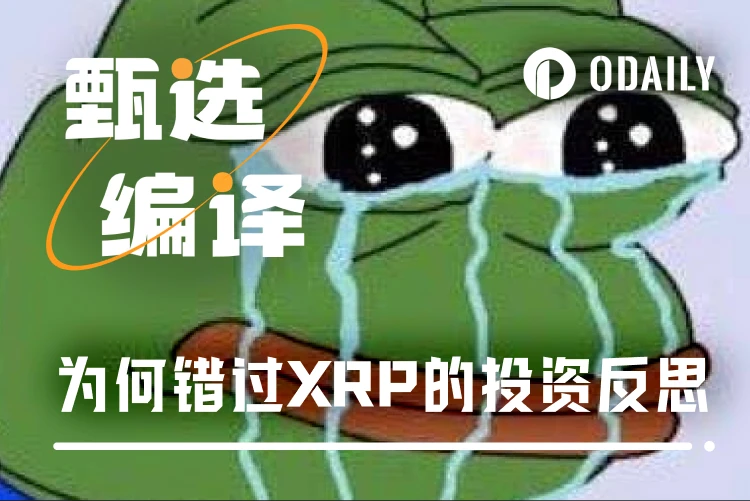Original text from Felipe Montealegre
Translation|Odaily Planet Daily Golem (@web3golem)_

Although economics studies rational actors making optimal decisions to achieve precise equilibrium, algorithmic game theory attempts to understand whether humans following simple rules can make decisions close to optimal. The process of "regret minimization" can help us understand when and how we can approach optimal decisions through simple rules.
It turns out that if humans "torture" themselves with regret after making mistakes, they become better at making decisions. Anyone who has learned a new skill can observe this process. When you play Settlers of Catan (Odaily note: a multiplayer strategy board game), you think about why you shouldn't focus on sheep, as the price of wool will inevitably drop as the game moves into the city-building phase; when you play tennis, you learn not to go for a backhand winner, especially when you're tired. This knowledge accumulates through the process of regret minimization, making your game increasingly approach the effective boundary of your abilities.
We are in a frenzied bull market, and many people wake up every morning feeling regret when they see an unheld token rise by 150% or even sometimes 1500%. Perhaps last week, a good friend recommended it to you, and you even saved several posts about it. You might have seen it on TikTok, thinking to yourself, "I can understand why young people would like this." So, is your regret a healthy regret minimization effort that can make you a better investor, or should you be more meticulous in your self-flagellation?
Three Types of Regret
There are three types of regret, and you should handle each type differently during the process of regret minimization.
External Regret
External regret means you feel you made the wrong choice in hindsight. It's like in a poker game, you have a pair of Aces and choose to go all-in (Odaily note: a pair of Aces is the best starting hand in poker), only to find that the person next to you hit a full house (Odaily note: three cards of the same rank, which beats a pair) on the last card; or when you go to a nearby Chinese restaurant and find it isn't that good, feeling external regret because you should have gone to the other place you considered, but you couldn't have known in advance.
As a fundamental investor, you also feel external regret when you miss XRP. Isn't a 5x return in 15 days great? In hindsight, external regret is a poor way to learn. In a probabilistic world, anything can happen, and you cannot feel regret for every missed opportunity; otherwise, you will abandon the discipline built around a sustainable, thoughtful investment philosophy.
Swap Regret
The fundamental issue is not whether you should have bought XRP, but whether you should change the trading principles that led you not to buy XRP. This is the role of swap regret.
Swap regret means you regret the rules you followed and wish to replace them with better rules. When you play poker, even though two Aces have appeared on the table, you still go all-in with a 7 and 4 in your hand simply because you are tired of folding; this is swap regret. You followed the rule of "bet big when bored," and you have reason to replace this suboptimal rule with other thinking rules about optimal poker play.
When Warren Buffett shifted from "cigar butt investing" to compound investing, he was learning swap regret, replacing one rule (i.e., buying relatively cheap assets) with another better rule (i.e., buying growth companies with strong moats). In the example of external regret, unless you decide to change the rule "I will try new restaurants" to "only stick to restaurants I already like," you won't feel swap regret in the Chinese restaurant example above. Swap regret is a great way to learn—you constantly examine the rules you follow when making decisions and ask yourself if there is a rule that could lead to better outcomes.
If you want to engage in proper regret minimization regarding XRP, you need to ask yourself if there are better rules that could help you make a purchase decision next time. Potential options include—"When an old friend texts me that a token is about to skyrocket, I should buy it" and "I should buy tokens that I see rapidly growing on TikTok." Many people are currently trying to engage in this type of swap regret learning.
I really can't think of any good rules that could integrate into my investment philosophy to lead me to invest in XRP, so I do not regret missing it. You can only feel swap regret when you are willing to change the rules that govern your behavior.
Internal Regret
Swap regret is the core concept, while internal regret is relatively easy to understand.
Internal regret means you did not execute your rules well. When you are a "paper hand"—selling at the bottom of SOL, even though you previously told yourself you were a contrarian investor willing to hold through significant pullbacks—you will feel internal regret. Druckenmiller knew it was a mistake when he bought at the peak of the tech bubble in 2001, even though he realized it at the time. You should not hesitate to self-flagellate over internal regret and learn some of your own trading disciplines.
免责声明:本文章仅代表作者个人观点,不代表本平台的立场和观点。本文章仅供信息分享,不构成对任何人的任何投资建议。用户与作者之间的任何争议,与本平台无关。如网页中刊载的文章或图片涉及侵权,请提供相关的权利证明和身份证明发送邮件到support@aicoin.com,本平台相关工作人员将会进行核查。



